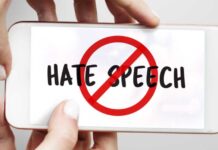
Americans following the trial of former President Donald Trump’s “Hush Money” case are finding themselves confused by many confusing terms, from NDA to “hush money” and “catch and kill” journalism. The source of the confusion is that most Americans realize that none of these tactics are inherently illegal.
“Catch and kill,” also called “checkbook journalism,” is a secretive tactic used by newspapers and media companies to keep potentially damaging information hidden from the public. Here’s how it works.
First, they approach someone who knows something sensitive, like a scandal involving an influential person. They then make a deal with that person, usually with a legal agreement, to buy the rights to the story. But instead of publishing it, they bury it. This benefits the individual by keeping the information under wraps. It’s different from just paying someone to keep quiet because it involves buying the rights to the story itself.
Trump stands accused of authorizing “catch and kill” tactics to bury unflattering news leading up to his 2016 election. But he is far from the only prominent figure to do so in the hopes of stifling negative news. Harvey Weinstein, co-founder of Miramax and convicted sex offender, used the practice to smother allegations of sexual abuse.
Arnold Schwarzenegger also used “catch and kill” strategies before he was elected Governor of California in 2003. He allegedly spent hundreds of thousands of dollars buying stories from more than 30 women who claimed sexual abuse at his hands.
While “catch and kill” journalism pushes ethical boundaries, it is not illegal.
What about “hush money?” It’s a term Bragg and the liberal media use frequently to add an air of illegality to Trump’s actions, but there is a catch – it’s legal.
When two parties agree to keep certain information confidential, and one party compensates the other for maintaining that confidentiality, it typically falls within the bounds of legality. Common examples include situations where one pays another to refrain from disclosing details of sensitive personal information. Legally, such payments are generally acceptable as long as the information being kept private isn’t tied to criminal activity or other unlawful behavior.
However, the enforceability of such agreements can be subject to scrutiny, mainly when there’s a significant public interest in the information being disclosed. Courts may choose not to uphold hush money contracts if enforcing them would result in social harm or if there’s a compelling public interest in revealing the information. This loophole would seem to be the focus of Bragg’s argument. He claims that, in Trump’s case, hush money payments were not just slimy but also illegal because they involved a future president of the United States.
The hush money, in this case, was tied to a non-disclosure agreement struck between porn star Stormy Daniels and former President Donald Trump. Are there any situations in which an NDA is illegal?
An NDA is a legal contract between parties that restricts the disclosure of certain information. Used in various contexts, including business, employment, and legal settlements, the NDA is Intended to protect sensitive information, trade secrets, or proprietary data. Employees sign NDAs to prevent them from sharing company secrets, for instance, while parties involved in a legal settlement may use an NDA as an agreement not to discuss the case publicly.
NDAs are frequently used by celebrities who wish to keep their private lives secret. NDAs can be used to hide details about everything from their romantic entanglements to the guest lists and details of events they may host.
Since NDAs, hush money, and “catch and kill” journalism are all legal (albeit underhanded) in the United States, what does Bragg hope to accomplish?
The obvious is that using little-understood terms hints at illegality and diminishes Trump’s political advantage. However, since none of this matters in a court of law, Bragg ultimately highlights that the payments were mislabeled under New York Penal Law § 175.10, a law devised specifically for falsified business records.
But Bragg is facing an uphill battle. Violating this law is typically a Class E misdemeanor, punishable by fines. While it is possible that stricter punishments, such as probation and a short jail sentence, could be imposed, they seldom are.
Unless your name is Trump, and you are guilty of the biggest crime of all – posing a threat to Joe Biden’s chances at reelection.







